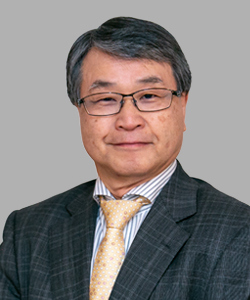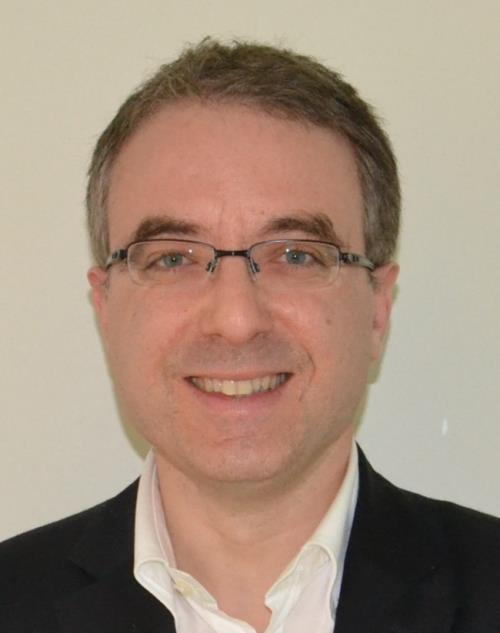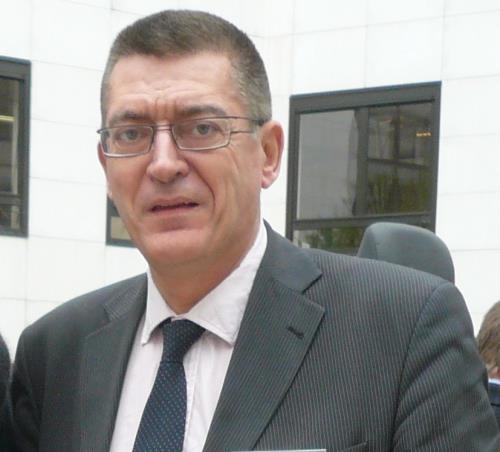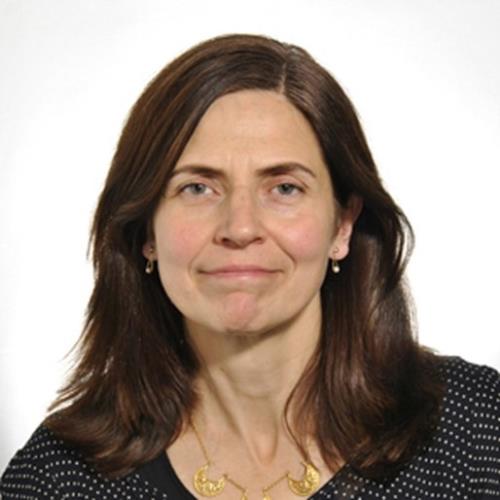Enabling the Net Zero Transition – Harnessing ICT solutions to reduce GHG emissions
ITU
Session 241
Organizations across sectors are establishing strategies to increase their decarbonization efforts. Many parties have brought forward the potential of ICT solutions to reduce the GHG emissions of other sectors and foster the transition to Net Zero. ICT and digital technologies can enable efficiencies in lifestyle and in all sectors of the economy by providing solutions that can improve energy efficiency, promoting circular economy, inventory and transportation management, and business efficiency by reducing travel and transportation and by substituting physical products for digital information. One important use of ICT solutions refers to its ability to provide a virtual presence in meetings and events, thereby reducing travel-related emissions. During the pandemic, this type of solution was critical to keep society up and running. Many organizations and event organizers are eager to reduce their travel-related emissions and need a methodology to monitor such emissions.
This session introduces a new methodology for comprehensively assessing the impacts of ICT solutions. It will highlight ICT solutions and implementations that can enable rapid decarbonization and Net Zero no later than 2050 at a planetary level. It will also acknowledge the need to identify the neutral or adverse effects of ICTs. Additionally, it will present the ongoing standardization work on the Methodology for estimating GHG emissions in the frame of virtual meetings and events. The session will also take into consideration relevant decisions based on COP27 and the Sharm el Sheikh Action Plan.

Seizo Onoe took office as Director of the Telecommunication Standardization Bureau (TSB) at the International Telecommunication Union (ITU) on 1 January 2023.
Before his election as TSB Director by ITU Member States, he completed an over 30-year career with Japanese mobile operator NTT DOCOMO. In 2021, he became Executive Vice President and Chief Standardization Strategy Officer for the Nippon Telegraph and Telephone (NTT) Corporation and a Fellow of NTT DOCOMO, INC. From 2017, he served as NTT DOCOMO’s Chief Technology Architect and President of its subsidiary DOCOMO Technology.
Between 2012 and 2017, he served as NTT DOCOMO’s Chief Technology Officer and Executive Vice President, a Member of the Board of Directors, and Managing Director of R&D Innovation Division. Earlier, he served as Senior Vice President and Managing Director of NTT DOCOMO’s R&D Strategy Department and Managing Director of the company’s Radio Network Development Department.
As TSB Director, he heads the part of ITU responsible for the coordination of technical standards and collaborative standardization processes that enable the interconnection and interoperability of information and communication technologies (ICTs) worldwide.
Mr Onoe is committed to facilitating open and inclusive standardization processes, along with promoting digital technologies to address global issues, building a new ecosystem that reflects evolving technologies, and strengthening cooperation and collaboration in ICT standardization worldwide.
Known in the industry as “the father of LTE” (Long-Term Evolution), he helped upgrade the wireless broadband standard for mobile devices and networks. He now aims for global outreach to bridge standardization gaps, deliver the benefits of technology widely and speedily, and ensure meaningful and affordable broadband access for everyone.
Mr Onoe holds a Master’s degree in electronics from the Kyoto University Graduate School of Engineering.

Jean Manuel is a Senior Manager, in charge of Climate and Biodiversity in the CSR Department of Orange Group. He has developed an expertise in the assessment of the environmental impact of ICT goods, services and organizations. He earlier led numerous projects to assess and reduce GHG emissions related to IT, for customers such as the European Parliament, France Télévisions or Zurich Financial Services. He serves as Vice-Chairman of ITU-T SG5 and Co-Rapporteur of the “Climate change and assessment of digital technologies in the framework of the SDGs and the Paris Agreement” question. He served as a member of the Advisory Panel of the UNFCCC “Momentum for Change” initiative. He also led projects developing public and private MOOCs (Massive Online Open Courses). Jean-Manuel graduated from Télécom ParisTech and the MBA Programme of the “Collège des Ingénieurs”. He holds a certificate in carbon accountancy from the French National Agency for Energy and Environment and a certificate in carbon finance from Carbone 4 Academy.
![Aprajita Sharrma [R]](/net4/wsis/forum/2023/Files/View/IMG/01dca58090c1ed11914cd067e5f879f3/Aprajita_Sharrma.jpg?maxwidth=500)
Aprajita Sharrma is a career Civil servant with government of India with 27 years of work experience.
She has handled Administration, HR, Staff and Establishment Matters, Capacity building, Project Management, Revenue Management, Budgetary work, Internal Audit and internal check.
She is an expert in environment and sustainable development , disaster management and public policy.
She has vast international exposure and currently is serving as Vice Chair of International Telecom Union (ITU’s) Council Standing Committee for administration and management for 2023 till 2024 and shall be Chair of the said Committee from 2025 till 2026.
She is also a resource person for ITU-D and is holding leadership position in Development sector of International Telecom Union (Geneva) Study Group 2 (SG2) Geneva, as Rapporteur/Chair for ICTs for Environment, which deals with E-waste management and role of frontier technologies in climate change mitigation for the period 2023-2025.
She also chaired the question from 2019-2022.
She has played active role in organizing various international workshops, webinars for ITU, she was also with the key DoT India , team which organized SG-3 event for ITU - T and RSF in India in the month of August, 2022.
She has also participated in various panel discussions at ITU, and instrumental in conducting various inter-national and national workshops/seminars and Mid-career trainings for Department of Telecom.
Currently she is pursuing Advance Management course in public policy from Indian School of business.

Philippe Tuzzolino is the Vice President of Environment of the Orange Group, he oversees the Environment and the organization of Climate Change: Net Zero carbon objectives, impact on biodiversity, and carbon sequestration policy. He defines policies and monitors energy consumption and the Group's overall footprint (Orange is present in 164 countries for business). As responsible for the Carbon Footprint, he participated in the development of methodologies for the ICT sector so that the sector complies with the IPCC recommendations as a member of the ITU-T Study Group "Climate Change" and also participates at the COP. He is a member of the Strategic Materials Committee of BERCY. Before joining the Orange Group, Mr. Tuzzolino held several positions on Strategic innovation projects at the headquarters of La Poste and at the French Ministry of Defense.
![Sara Ballan [R]](/net4/wsis/forum/2023/Files/View/IMG/8dc8f33291c1ed11914cd067e5f879f3/Sara_Ballan.jpg?maxwidth=500)
Sara co-leads the World Bank Green Digital Business Line. This includes creating awareness, partnerships, actionable knowledge and tools to support client countries green the digital sector and leverage digital technologies for adaptation and mitigation. Sara is based in Nairobi, Kenya and is also engaged in digital investment projects in Eastern and Southern Africa. Before joining the World Bank Sara has worked extensively in the nexus between technology and sustainability, including in the management of a digital company, as a consultant and in the public sector. Sara has worked in many countries across Africa and Asia on business development, multistakeholder partnerships, and policy-work tackling development challenges. Sara has combined a MSc in Political Science with business and innovation studies.

Pernilla Bergmark is a Principal Researcher at Ericsson focused on the sustainability impacts of ICT. Her research interests include methodology development and assessments related to climate impacts, circular economy, smart sustainable cities, and Global Goals. Pernilla Bergmark is a co-author of the Exponential Roadmap for 1.5oC aligned climate action, a collaboration between Future Earth, Sitra, WWF, KTH Royal Institute of Technology, PIK, Ericsson, and others, where she focused on policy and technology. She is also a co-author of the 1.5C Business Playbook, which is supported by 55+ partners from brands, enterprises, organizations and academia. Pernilla Bergmark is also active in standardization as a co-rapporteur of ITU SG5 Q9, Climate change and assessment of digital technologies in the framework of the Sustainable Development Goals (SDGs) and the Paris Agreement, in ETSI EE, and in the Swedish national committee for cities, TC 268 (SIS TK 588) and environmental management (SIS TK 207). Lately, she has contributed to the development of the ICT sectoral decarbonization approach developed by ITU/GSMA/GESI for the SBTi, the ITU standard on Net Zero, and the coming standard on avoided emissions of ICT. She is also active in the 6G research project, Hexa-X, and the European Green Digital Coalition.
-
 C6. Enabling environment
C6. Enabling environment
-
 C7. ICT applications: benefits in all aspects of life — E-environment
C7. ICT applications: benefits in all aspects of life — E-environment
-
 Goal 7: Ensure access to affordable, reliable, sustainable and modern energy for all
Goal 7: Ensure access to affordable, reliable, sustainable and modern energy for all
-
 Goal 12: Ensure sustainable consumption and production patterns
Goal 12: Ensure sustainable consumption and production patterns
-
 Goal 13: Take urgent action to combat climate change and its impacts
Goal 13: Take urgent action to combat climate change and its impacts